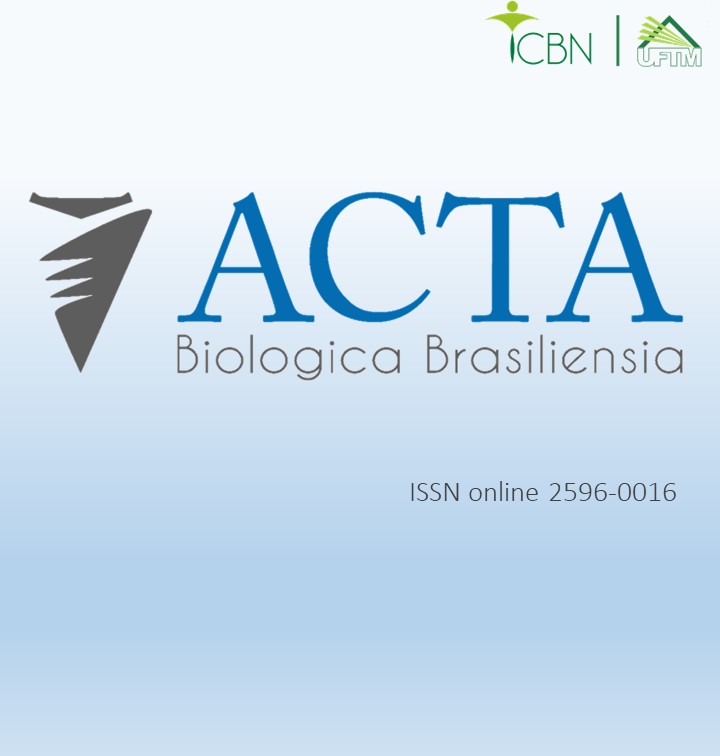CARACTERÍSTICAS GERAIS DO BIOINVASOR Limnoperna fortunei (Dunker, 1857)
DOI:
https://doi.org/10.18554/acbiobras.v5i2.7222Palavras-chave:
Mexilhão Dourado, Impactos Ambientais, Biodiversidade, integridade biótica, estresse ambientalResumo
A bioinvasão de moluscos exóticos vem se configurando em um problema não somente aos ecossistemas naturais, mas também às diversas atividades humanas em sistemas industriais e produtivos. Pensado nesse cenário o presente artigo tem como objetivo realizar revisão sobre Limnoperna fortunei para avaliar o impacto da bioinvasão do molusco no Brasil. Para realizar a avaliação do mexilhão dourado, foi realizado um amplo levantamento de publicações nas bases de dados, na categoria artigos científicos até 2023. O mexilhão Dourado é considerado “engenheiro de ecossistemas” pois altera o ambiente, mudando grande parte da estrutura física deste. Como consequência, muitas vezes têm efeitos sobre outros organismos e, consequentemente nos processos e serviços ecossistêmicos. Aglomeram-se nas aberturas das conchas de moluscos nativos dificultando suas atividades básicas, como obtenção de alimento. Em vários casos promove a extinção local de espécies reduzindo a biodiversidade local. O mexilhão vive em aglomerados, com forte comportamento gregário. Seus hábitos podem ocasionar corrosão e obstrução de superfícies e tubulações, promovendo, dessa forma impactos econômicos, sociais e ambientais, inclusive em plantas industriais, que utilizam água in natura.






